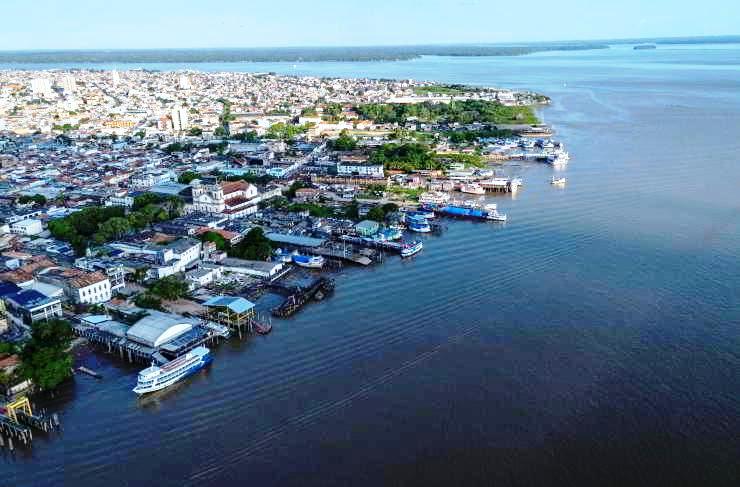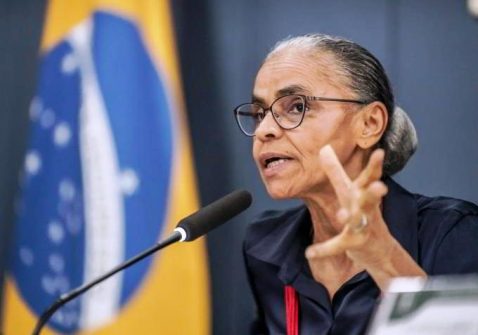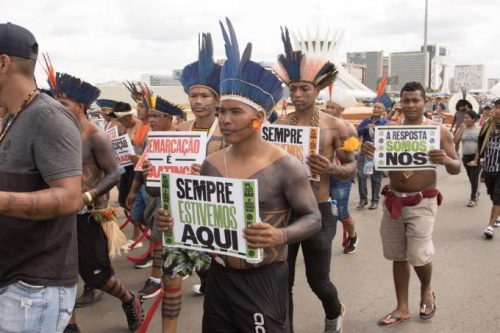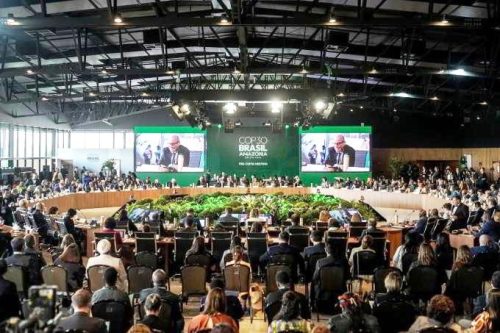The COP in the Heart of the Amazon.

The choice of Belém do Pará as host of COP30 places the Amazon at the centre of global climate politics.
More than a geographical shift, it is a symbolic gesture that highlights the forest as a vital territory for planetary balance, but also as a stage for historic contradictions: deforestation, extractive pressures, and social inequalities directly affecting the region’s peoples.
The conference, therefore, carries a dual dimension. On one hand, it inspires through the strength of Amazonian peoples and the possibility of rooting negotiations in local territories. On the other, it challenges due to the city’s logistical limitations and Brazil’s internal political tensions. This contrast will permeate the entire event: while heads of state and negotiators meet in official halls, communities, social movements, and churches intend to turn Belém into a space of contested narratives and the affirmation of alternatives.
Conference Logistics and People’s Mobilisation. A city of just over two million inhabitants, with limited infrastructure, will be called upon to host tens of thousands of delegates, journalists, observers, and social movements. Concerns over transport, accommodation, and connectivity demand extraordinary preparation by the Brazilian state and international organisers.
These aspects, while technical, are not irrelevant: they are mobilised by political actors, including fossil lobbies and groups opposed to broad social participation, as arguments to restrict access and accreditation. Logistics, therefore, also becomes a field of dispute in the main international arena of climate decision-making.

Marina Silva, Brazilian Minister of the Environment and Climate Change. Photo: Rafa Neddermeyer/COP30 Brasil Amazônia/PR
The meeting will also compel heads of state, negotiators, and international organisations to confront the real territory of the Amazon – its rivers, its communities, and its ways of life.
For social movements, this is the opportunity to show that the ecological transition must move from distant offices to the lived reality of people on the frontline of the climate emergency.
In this context, distinct mobilisations are already underway. The so-called COP of the Baixadas, organised by peripheral communities of Belém, aims to highlight urban socio-environmental inequalities, showing that the climate crisis also unfolds in Amazonian cities. Meanwhile, the People’s COP will feature a Tribunal of the Peoples, where violations committed by economic enterprises against Indigenous, quilombola (afrodescendent), and traditional communities in Brazil will be judged.The People’s Summit is expected to bring together over 15,000 participants in Belém, articulating social movements at both national and international levels. Its agenda is built around thematic axes defined by the real demands of people, such as agroecology, land demarcation, a just energy transition, and the rights of nature.

Brazilian Indigenous people. They have announced that they will address the issue of land demarcation and titling in Belém as a key part of climate justice. 123rf
Alongside these initiatives, ecumenical and interreligious movements are preparing vigils, celebrations, and the installation of an ecumenical tapiri — a symbolic space for spiritual and intercultural dialogue — to affirm that the climate struggle is also an ethical and faith-based issue.
These mobilisations do not stand outside the official conference; they actively challenge it, offering counterpoints to formal negotiations and denouncing so-called “false solutions” that privilege markets over rights. At the same time, they develop concrete alternatives – from the recognition of ecological debt to ways of living with the biomes – underscoring that the implementation of global commitments will only be possible if rooted in the territories.
Among these struggles, Indigenous leadership will undoubtedly stand out. Leaders have already announced that they will bring to Belém the agenda of land demarcation and titling as a central axis of climate justice, echoing both inside and outside the negotiation halls of what they call the NDC of ancestral peoples.
Disputes within the government. Compared to recent Climate Conferences, Belém is expected to offer greater openness to social participation – a result of both Brazil’s effort to reaffirm its international standing and the vitality of local movements.

During the Pre-COP, Simon Stiell (Executive Secretary of the UNFCCC) emphasised the importance of countries submitting new Nationally Determined Contributions (NDCs) that are aligned with the 1.5°C target, as well as accelerating the implementation of climate agreements to achieve tangible results. Photo: Rafa Neddermeyer/COP30
This approach has been reinforced by mechanisms articulated by the Ministry of Foreign Affairs (Itamaraty), the Ministry of the Environment and Climate Change (MMA), the Ministry of Indigenous Peoples (MPI), and the Special Secretariat for COP30. Initiatives include accrediting civil society representatives in the Brazilian delegation, the CoParente Cycle for Indigenous registration, self-managed Global Ethical Reviews, the Global Climate Action Task Force, and the digital platform Maloca, available in multiple languages to broaden remote access.
At the same time, political and legislative tensions contradict this openness. The so-called “Devastation Bill” (PL 2.159/2021) – which has 63 presidential vetoes – weakens environmental licensing and reduces requirements for “strategic” projects. Meanwhile, during the Bonn Conference, the government auctioned 172 oil blocks – 47 of them in the sensitive Amazon River mouth – highlighting the gap between climate rhetoric and governmental practice. In Belém, this contradiction may be leveraged by international actors and will test how far Brazil can reconcile its climate leadership with the pressure of internal economic and political interests. (Open Photo: The city of Belém with Guajará Bay. Shutterstock/Anderson Coelho)
(L.D’A)



